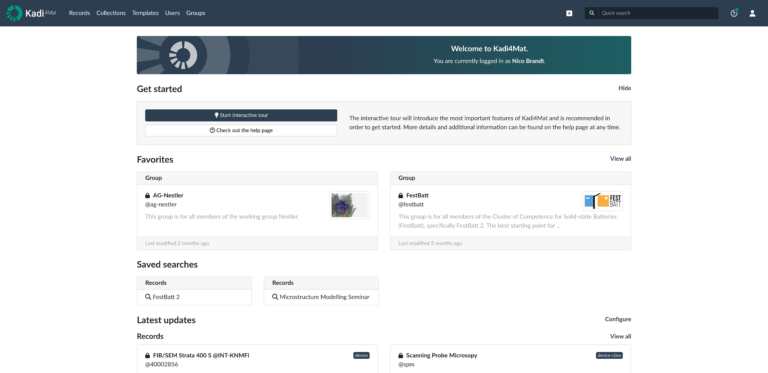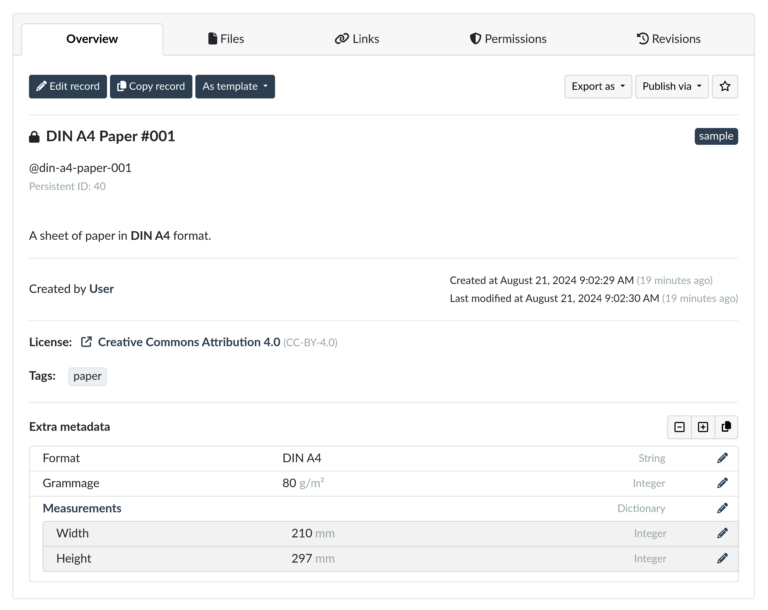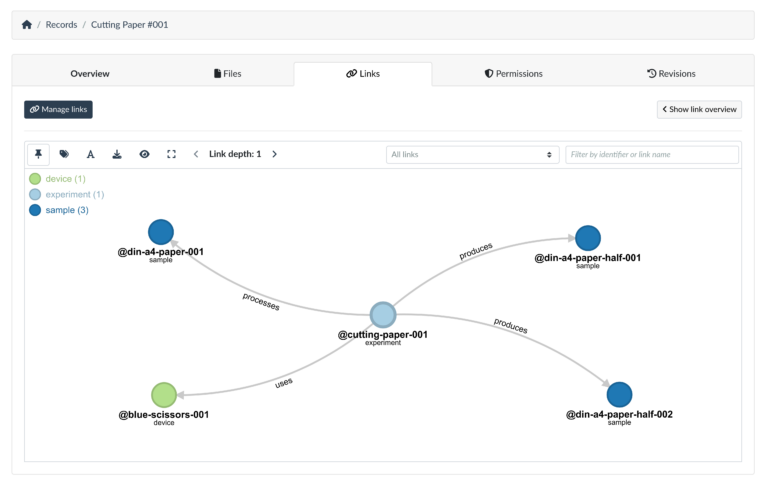What is Kadi4Mat?
Kadi4Mat is a generic and open source virtual research environment, which can be hosted as a web-based service. The instances hosted at KIT can be leveraged to enhance (meta)data management and integration in the engineering community working in academia, research institutions, or industry. The core capabilities include data management, which organizes and standardizes research data for easier search, retrieval, and sharing.

By adhering to FAIR (Findable, Accessible, Interoperable, Reusable) data principles, Kadi4Mat ensures that research data is accessible and reusable, promoting collaboration and innovation across disciplines such as chemistry, physics, and engineering. Additionally, the platform integrates with other services and interfaces like Zenodo (publication), S3 (storage), OpenID Connect (authentication) and computational tools for further data analysis in the research process. Kadi4Mat also supports open data initiatives by enabling institutions to publish and share research data for the broader scientific community. Its primary users are those focused on data-driven research and collaborative research projects.
Kadi4Mat’s strengths lie in its compliance with FAIR principles, cross-disciplinary collaboration support, and integration with computational tools, which make it a powerful resource for accelerating research. Its framework ensures consistent and clear data representation by employing domain specific ontologies and improving the ability to compare data across projects. However, the service can potentially present a steep learning curve, particularly for users unfamiliar with research data management. Additionally, its utility depends on active community involvement, as more data contributions enhance the platform’s overall effectiveness.
Link to the service
https://kadi4mat.iam.kit.edu
https://demo-kadi4mat.iam.kit.edu
Terms of use & restrictions
Currently to be determined for general use of the KIT+ instance. The Demo instance is free to use, but automatically reset once a month.
Contact
Michael Selzer, michael.selzer@kit.edu
References
publications that reference (or report on using) the service
Kadi4Mat: A Research Data Infrastructure for Materials Science (2021)
http://doi.org/10.5334/dsj-2021-008
Managing FAIR Tribological Data Using Kadi4Mat (2022)
https://doi.org/10.3390/data7020015
Generating FAIR research data in experimental tribology (2022)
https://doi.org/10.1038/s41597-022-01429-9
Structured Data Storage for Data-Driven Process Optimisation in Bioprinting (2022)
https://doi.org/10.3390/app12157728
KadiStudio: FAIR Modelling of Scientific Research Processes (2022)
http://doi.org/10.5334/dsj-2022-016
KadiStudio use-case workflow: Automation of data-processing for in situ micropillar compression tests (2023)
https://doi.org/10.5334/dsj-2023-021
Strukturiertes Management von Forschungsdaten in den Ingenieurwissenschaften (2024)
https://doi.org/10.5445/IR/1000168522
Miscellaneous
A website with a collection of all relevant information and links can be found at https://kadi.iam.kit.edu


